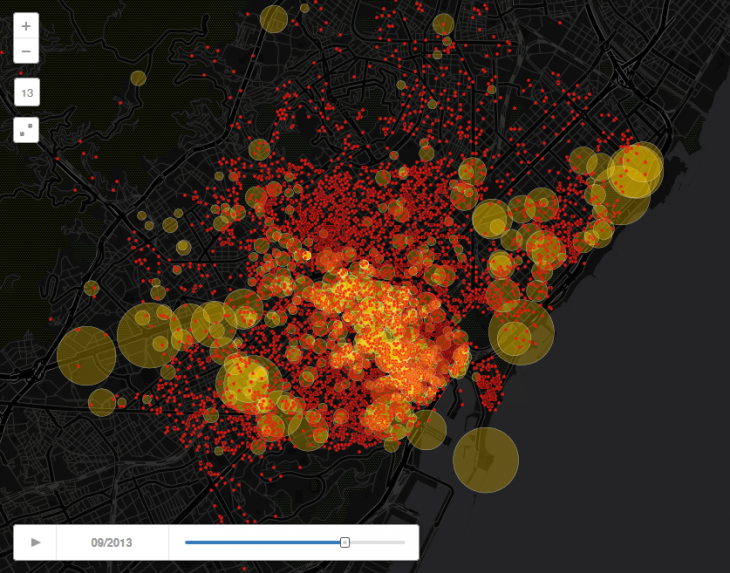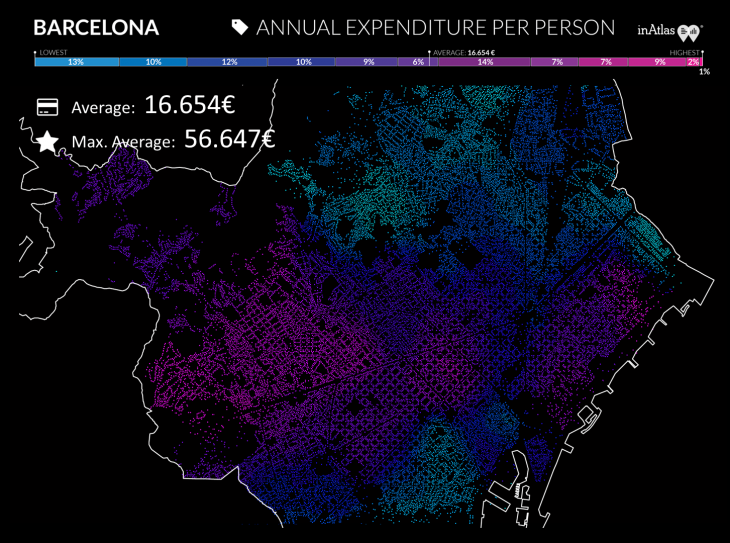BIG DATA BASED ON LOCATION
Guest Faculty: Luis Falcón Martínez de Marañón – CEO inAtlas
The evolution of cities is built upon interactions of people.
This Master Class will focus on how disruptive technologies are forcing every urban actor on rethinking the way cities are being shaped. Last September 2015, the World Economic Forum launched a survey where were defined six megatrends which are shaping society, and their associated opportunities and risks: 1. Wearable and implantable technologies, 2. Cloud computing, 3.The Internet Of Things (IoT), 4. Artificial intelligence (AI) and Big Data, 5. The sharing economy and distributed trust, 6. The digitization of matter (3D printing). Concerning the city, Big Data and AI are the key technologies that integrate the intelligence produced by the other five. Geospatial analytics of information lead to intelligent decision making on urban scale.

Data is the new fuel for urban decision makers, both public and private. There are four main types of fonts: Structured data (External and Internal), and Unstructured data (External and Internal). These data can be sourced via four channels: Open Data, produced, integrated and open to the public by Public Administrations; Real time data shared by private entities via Application Programming Interfaces (API); Private data with conditional sharing status; and data spread on Internet HTML codes lines.

We will explore how operative new technologies and Big Data are on making cities better managed systems. The first part of the class will define a theoretical approach on the 6T concepts for urban competitiveness: Territory, Time, Tolerance, Tourism, Technology and Talent. The second part of the class will focus on four (4) real case studies. 1. Airbnb phenomenon in Barcelona, 2. Sectorial Tourism Strategic Plan for Catalonia, 3. The urban performance of tourists which visited Sagrada Familia Temple via the behavior on social media, and 4. The application of Big Data on SME urban economic development.
https://es.linkedin.com/in/lfalcon